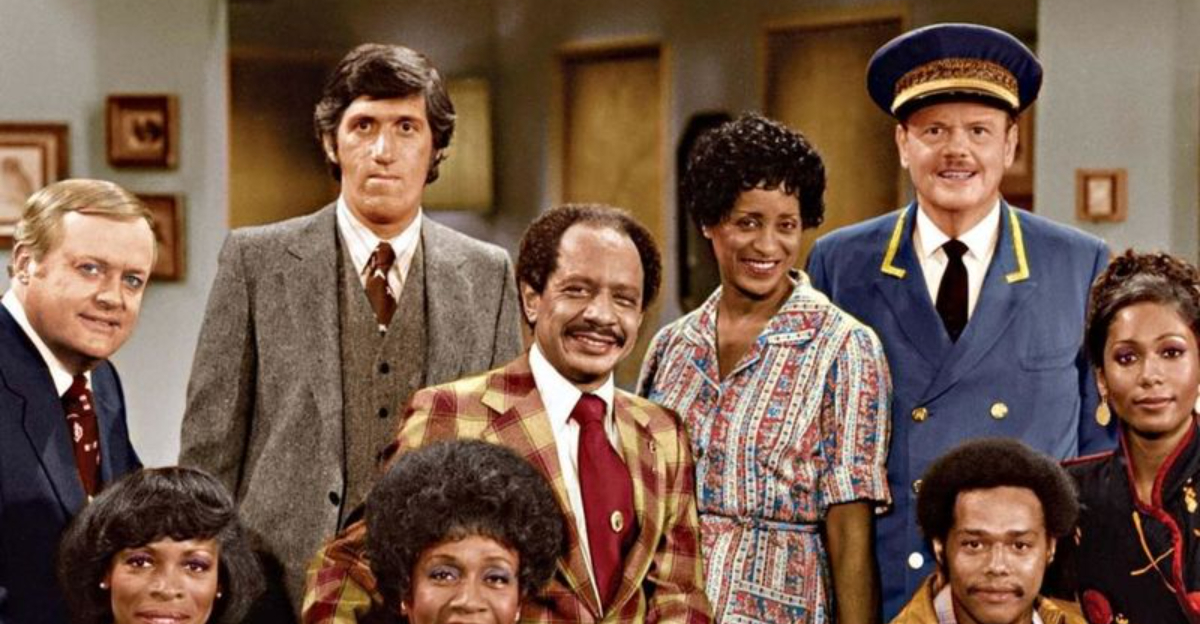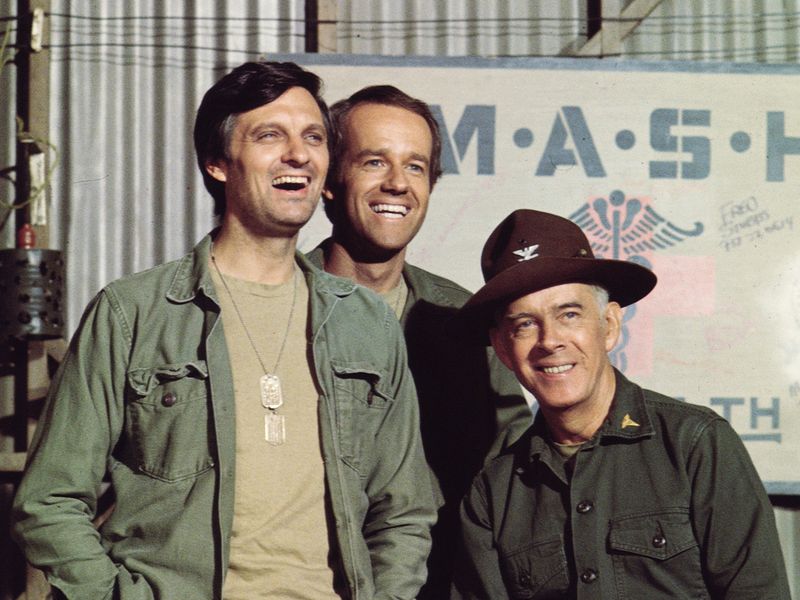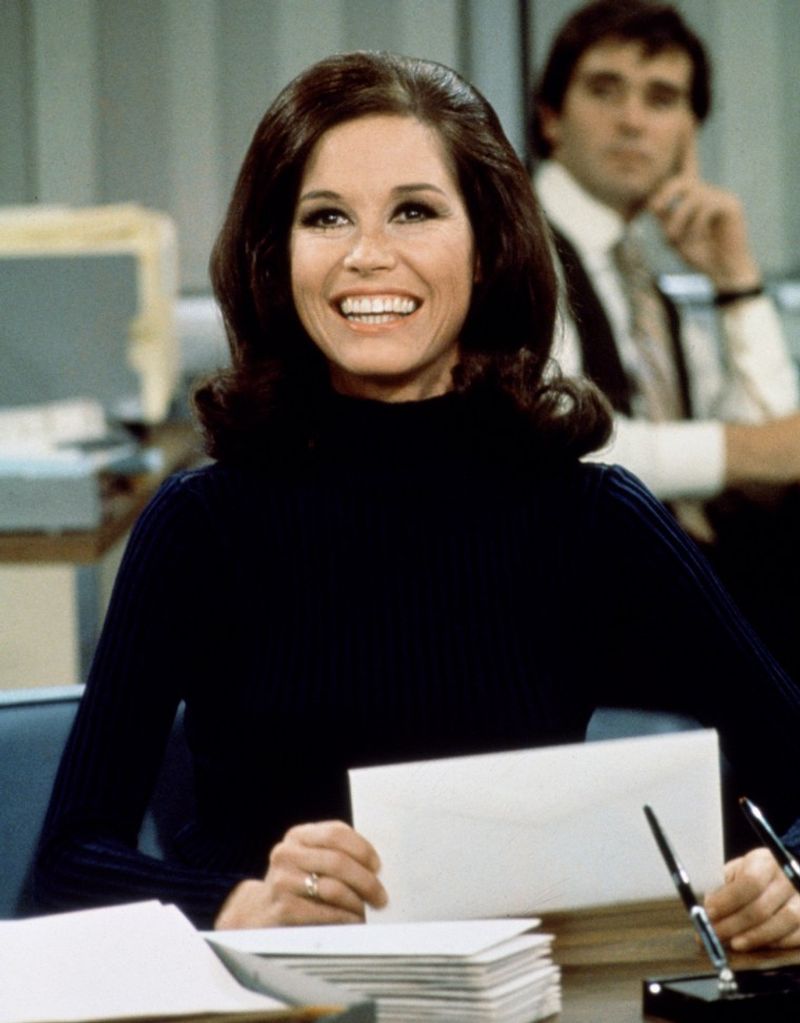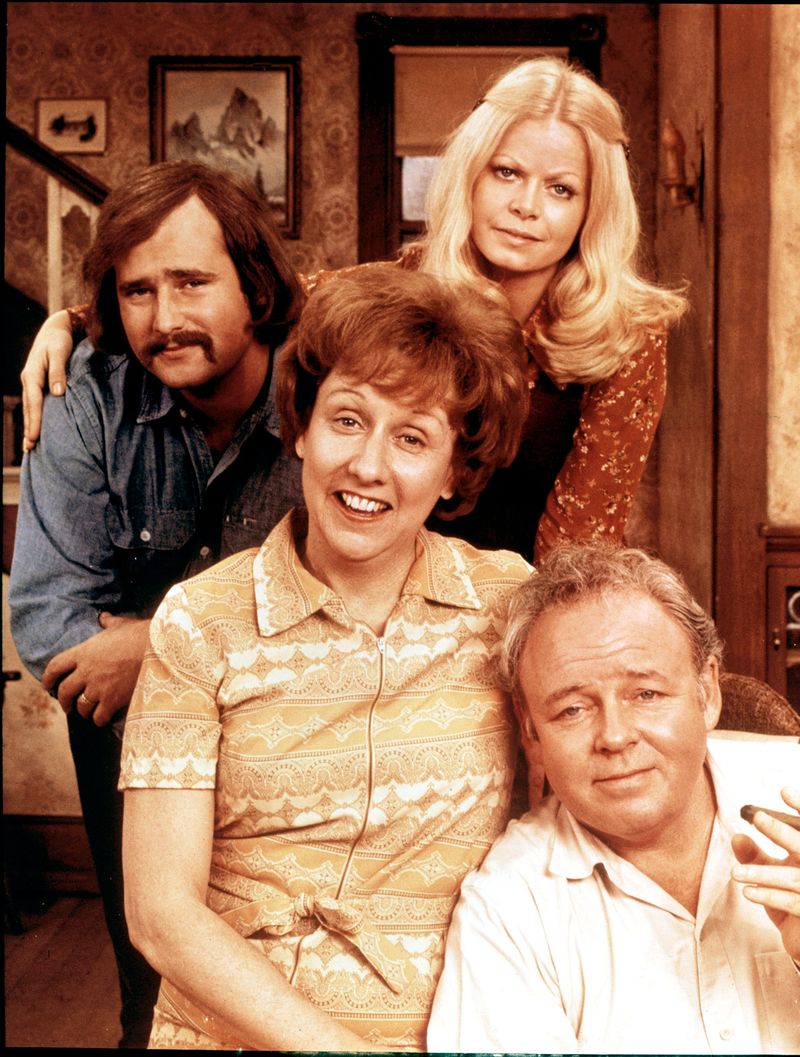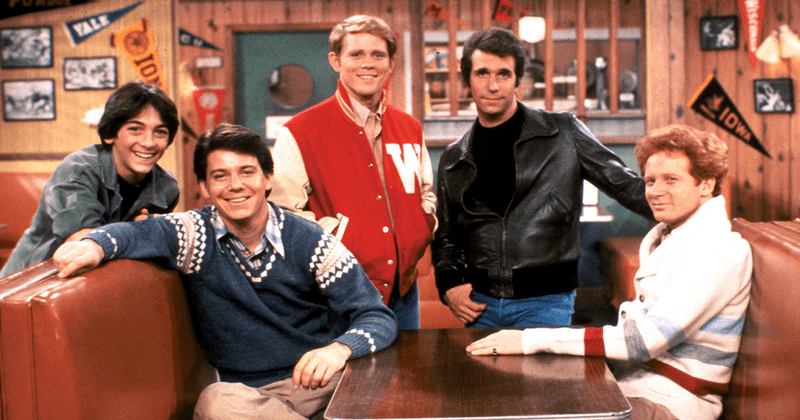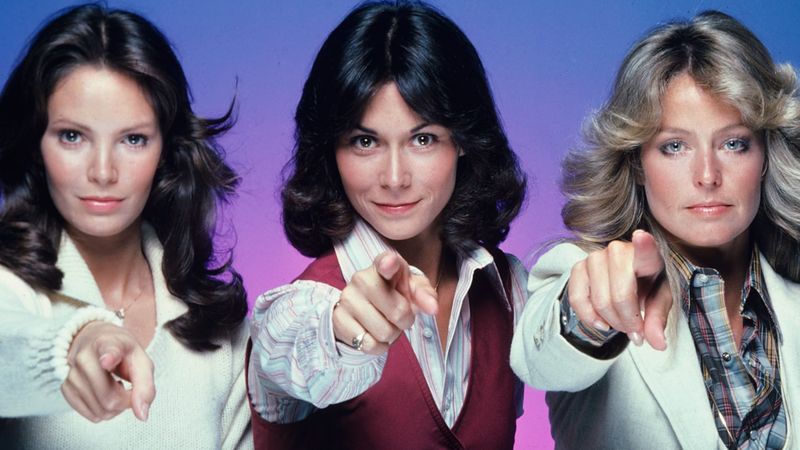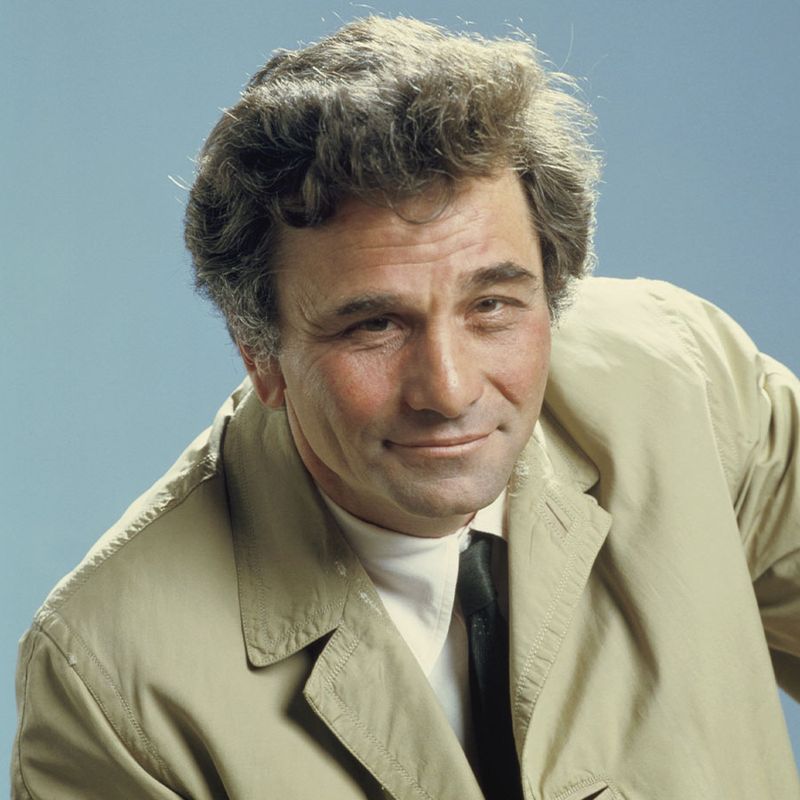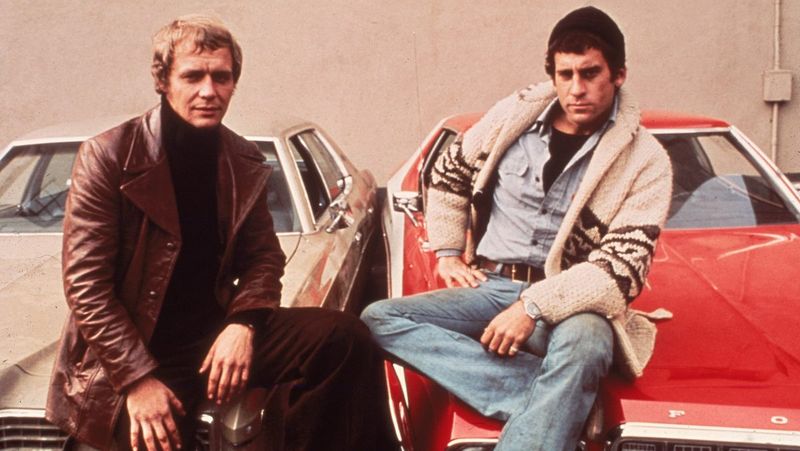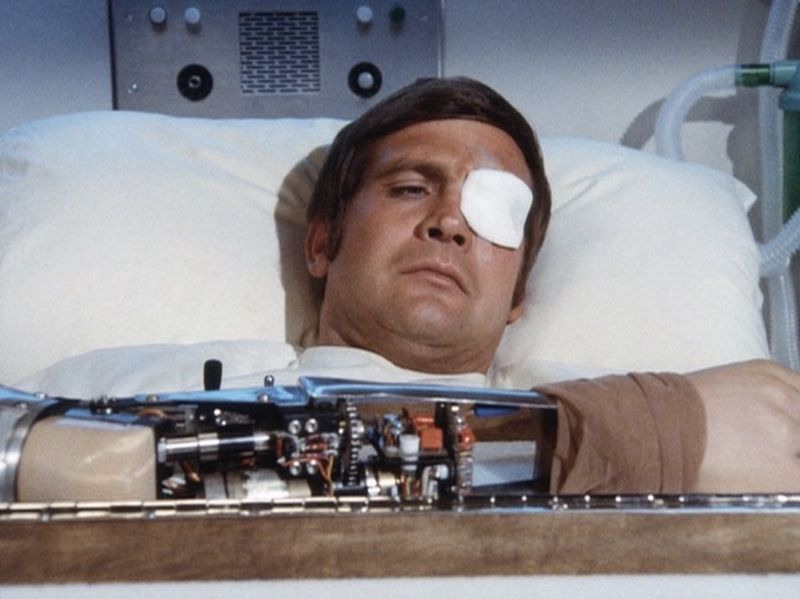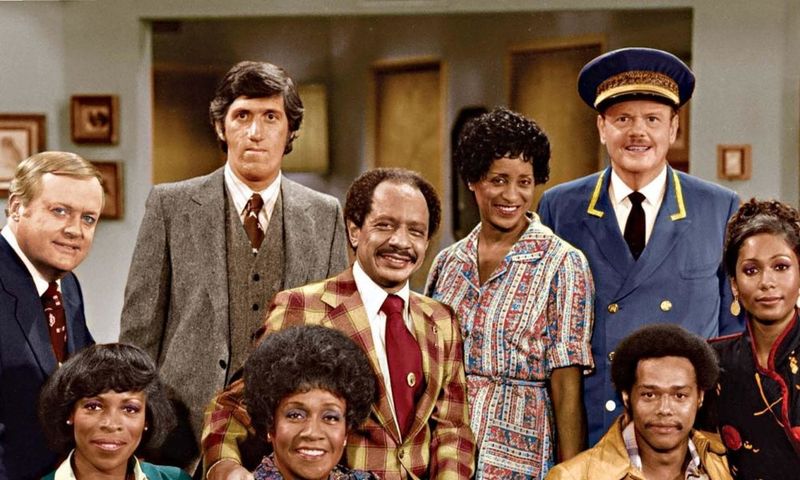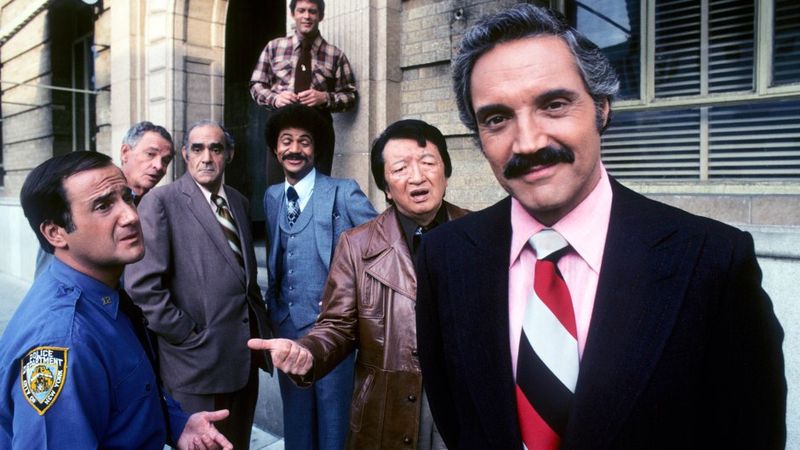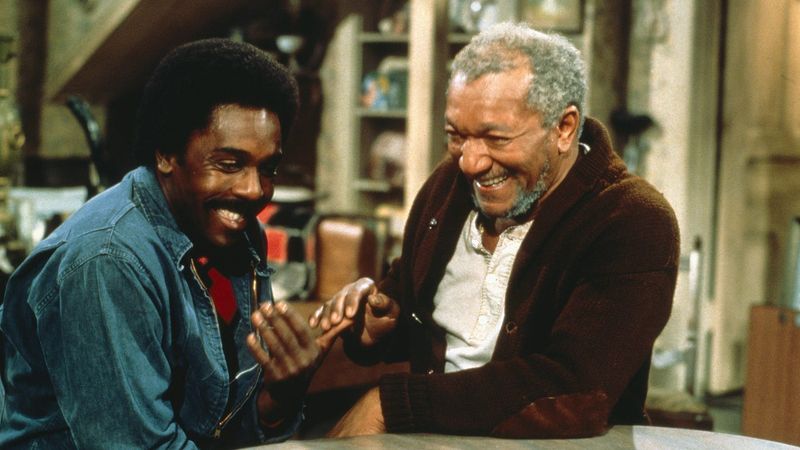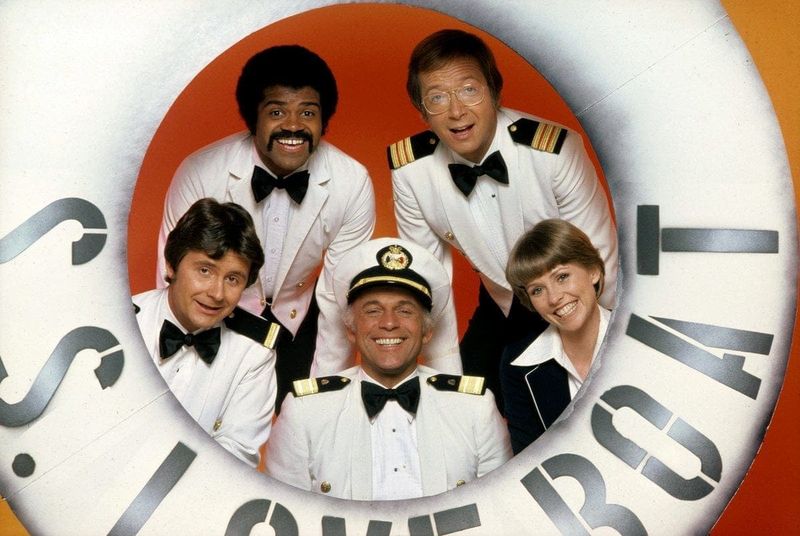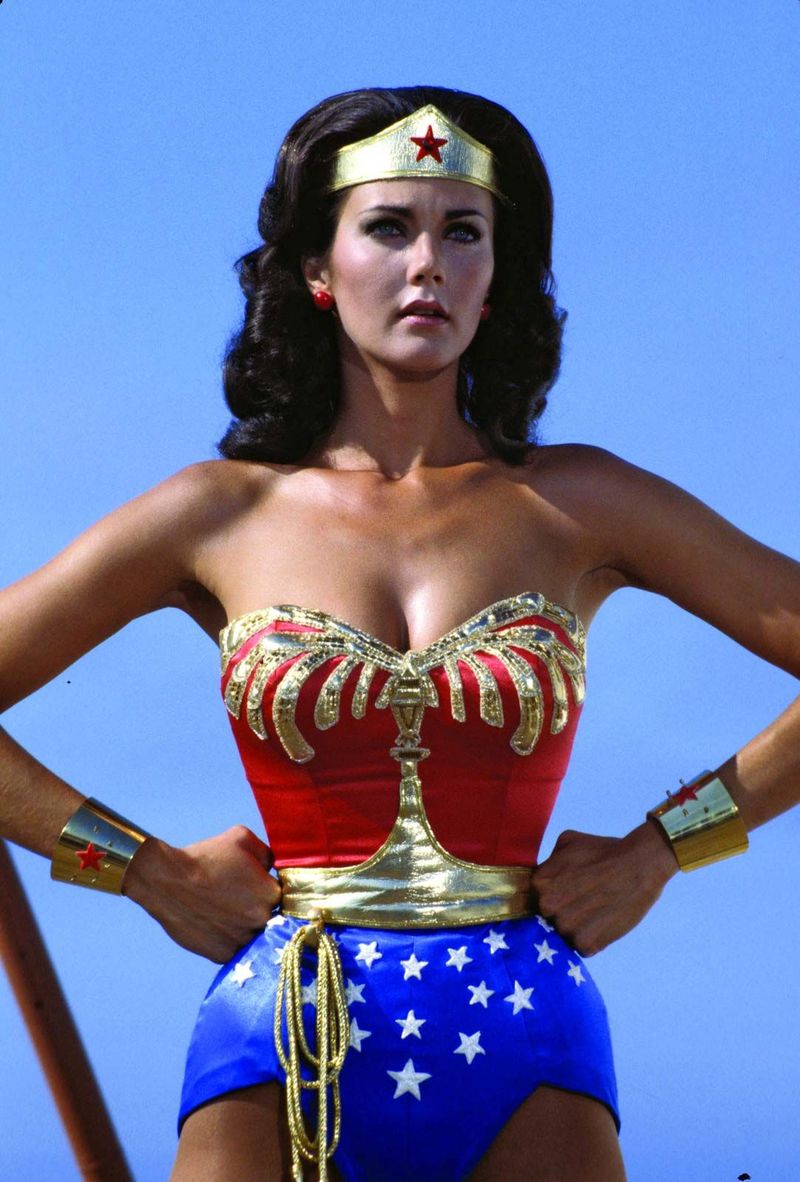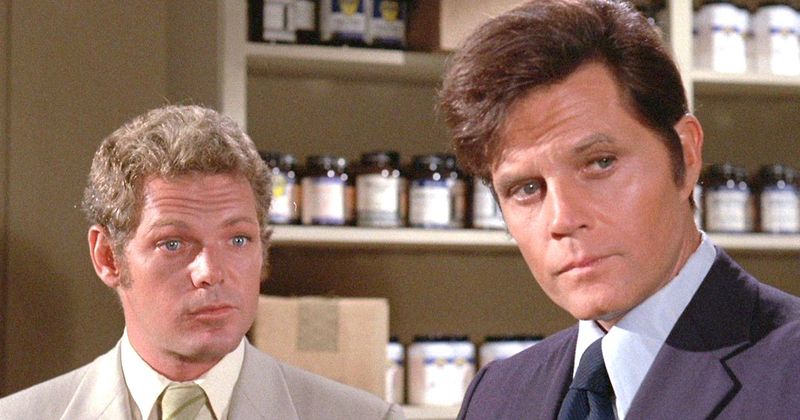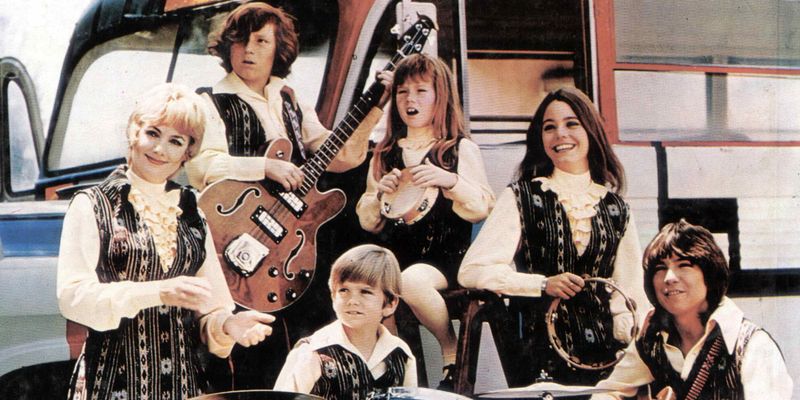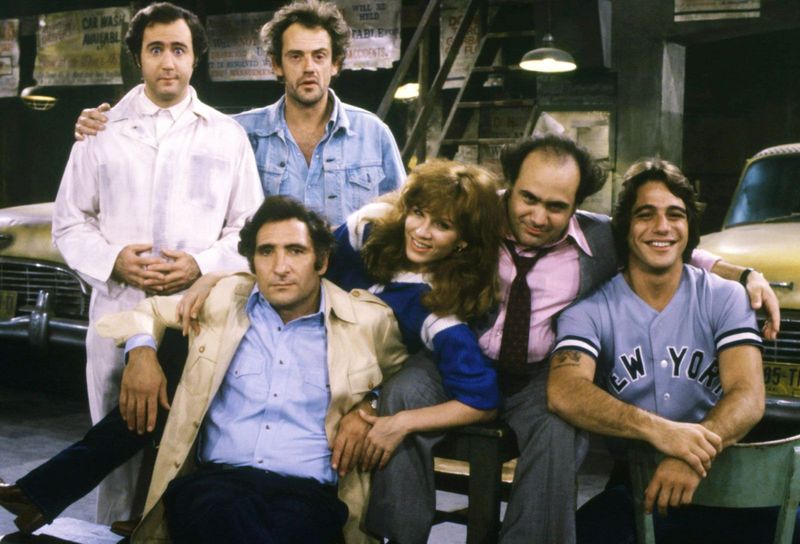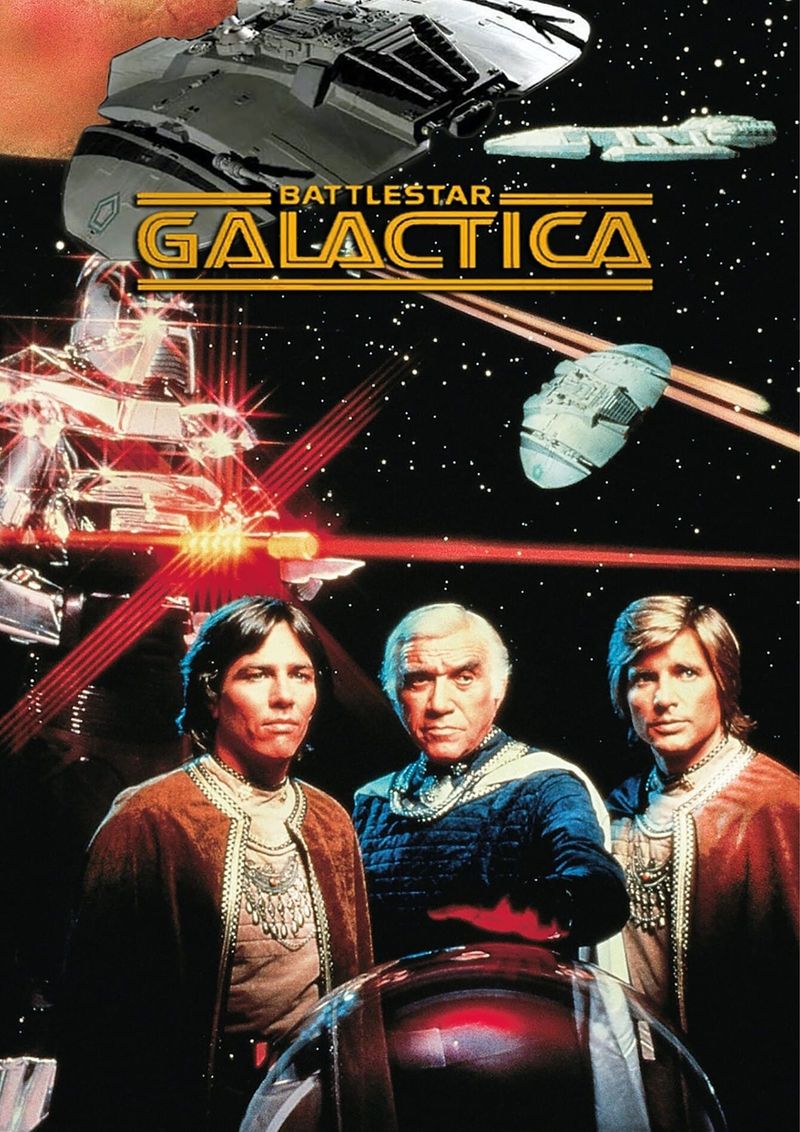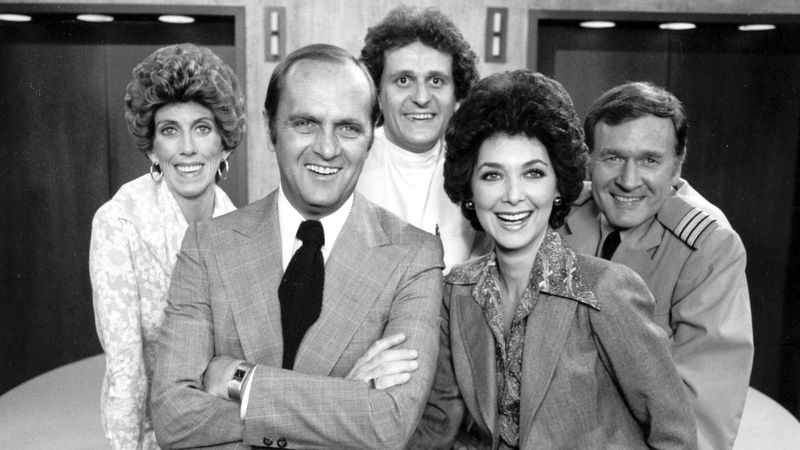The 1970s was a transformative decade for television, bringing groundbreaking content that resonates even today. These 20 classic shows changed the way we watch TV, offering a mixture of humor, drama, and social commentary. Each show left a lasting impact, influencing the way stories are told and characters are portrayed on screen.
1. MAS*H (1972–1983)
MAS*H, a blend of sharp humor and poignant drama, captured audiences with its depiction of a mobile army surgical hospital during the Korean War. The show’s unique ability to tackle serious themes with wit made it a standout in television history. With its memorable characters, such as Hawkeye Pierce and “Hot Lips” Houlihan, MAS*H challenged the conventions of sitcoms. The series finale remains one of the most-watched episodes in TV history. Did you know? MAS*H ran longer than the actual Korean War, proving its enduring appeal.
2. The Mary Tyler Moore Show (1970–1977)
Who could turn the world on with her smile? Mary Tyler Moore did, playing a single, independent woman thriving in a bustling newsroom. This sitcom broke new ground, shattering traditional gender roles with its portrayal of a career-driven woman. The show’s humor and charm lay in its relatable characters and progressive themes. It not only entertained but also inspired a generation of women to pursue their dreams. Interestingly, the show’s iconic theme song became a feminist anthem of sorts.
3. All in the Family (1971–1979)
Archie Bunker’s living room became a battleground for the cultural issues of the 1970s. With biting humor, All in the Family tackled racism, sexism, and more, through the lens of a lovable bigot. The show’s bold storytelling and unforgettable characters challenged viewers to confront societal norms. Its impact can still be seen in today’s television landscape. Did you know that the show’s famous armchair is now a part of the Smithsonian’s collection? It’s a testament to its cultural significance.
4. Happy Days (1974–1984)
With a thumbs-up and a “Heyyy,” The Fonz became an icon of 1970s television. Happy Days transported viewers to a nostalgic version of 1950s America, with its feel-good stories and memorable characters. The show captured the essence of a decade, making audiences laugh and reminisce. Its enduring popularity led to multiple spin-offs, solidifying its place in TV history. A fun fact: The phrase “jumping the shark,” referring to a show past its peak, originated from a Happy Days episode.
5. The Brady Bunch (1969–1974)
The story of a lovely lady and a man named Brady became an indelible part of pop culture. The Brady Bunch brought the concept of a blended family into the mainstream, along with their wholesome, albeit quirky, adventures. Its catchy theme song and relatable family dynamics ensured its place in television lore. This show didn’t just entertain; it set a standard for family sitcoms. Did you know that the cast recorded four albums during the show’s run? Music was a big part of their charm.
6. Charlie’s Angels (1976–1981)
When three glamorous detectives took to the screen, they did more than fight crime—they shattered stereotypes. Charlie’s Angels was revolutionary, showcasing strong, intelligent women solving mysteries. Each episode was a blend of action, suspense, and style. This trailblazing series influenced countless shows that followed, proving that women could lead in action-packed roles. A fun tidbit: The identity of Charlie, their boss, was never revealed on screen, adding an air of mystery to the show.
7. Columbo (1971–2003)
Just one more thing… Columbo’s catchphrase was as iconic as his investigative style. This unconventional detective series flipped the script on whodunnits, showing the crime at the start, then revealing Columbo’s methodical approach to solving it. Peter Falk’s portrayal of the rumpled yet brilliant detective made the show a classic. The series was known for its clever plots and guest stars. A quirky fact: Columbo’s famous trench coat was actually Falk’s own, worn throughout the series.
8. The Rockford Files (1974–1980)
Jim Rockford, an ex-con turned private eye, charmed audiences with his quick wit and relatable personality. The Rockford Files set a new standard for detective shows with its focus on character-driven storytelling. Unlike traditional heroes, Rockford often found himself in humorous, everyday situations. This series was celebrated for its realistic portrayal of private investigation work. Did you know that the show’s theme song became a top 10 hit? It’s a testament to its popularity during its run.
9. Starsky & Hutch (1975–1979)
Fast cars, stylish jackets, and unbreakable camaraderie defined Starsky & Hutch. This buddy cop series captured the essence of ’70s cool, with its thrilling car chases and gritty street crime stories. The dynamic duo’s chemistry and banter were key to the show’s appeal. Starsky & Hutch influenced countless buddy cop pairings in media that followed. Fun fact: The show’s iconic car, a red Ford Gran Torino, became a symbol of 1970s television glamour and style.
10. The Six Million Dollar Man (1974–1978)
“We can rebuild him…” The Six Million Dollar Man made sci-fi fans dream of bionic possibilities. Steve Austin, a former astronaut turned bionic agent, captivated viewers with his superhuman abilities. The show combined action, science fiction, and intrigue, setting a new bar for adventure series. Lee Majors’ portrayal brought a unique charm to the character, who became a symbol of the era’s fascination with technology. Did you know? The show inspired a slew of merchandise, from action figures to comic books.
11. The Jeffersons (1975–1985)
Moving on up to the east side, The Jeffersons brought humor and heart to the lives of an affluent Black family. This All in the Family spin-off tackled race and class with wit and sincerity, providing a unique perspective on the American dream. George Jefferson’s larger-than-life personality contrasted with Louise’s nurturing nature, creating memorable television moments. The show’s impact was profound, as it was one of the first to portray a successful Black family on TV.
12. Barney Miller (1975–1982)
In the heart of a New York precinct, Barney Miller captured the everyday humor and challenges faced by detectives. This police procedural stood out with its comedic twist, focusing on the eccentricities of its characters. The series was praised for its realistic depiction of police work, coupled with light-hearted humor. The diverse cast and sharp writing made it a beloved show. A fun fact: Barney Miller won multiple awards, highlighting its unique blend of comedy and crime-solving.
13. Sanford and Son (1972–1977)
With a gruff voice and sharp wit, Fred Sanford turned junk into comedic gold. Sanford and Son was one of the first successful Black-led TV shows, breaking barriers and entertaining millions. Redd Foxx’s portrayal of the sarcastic junk dealer became iconic, influencing future sitcoms. The show’s humor often tackled social issues in a relatable way. Did you know? The show was based on the British sitcom Steptoe and Son, adding an interesting cultural twist to its origins.
14. The Love Boat (1977–1986)
Welcome aboard The Love Boat, where romance and adventure set sail every week. This anthology series featured guest stars and whimsical storylines, all set on a luxurious cruise ship. Its cheesy yet charming narratives captivated viewers, making it a must-watch for those seeking lighthearted escapism. The show’s success was marked by its longevity, running for nearly a decade. Fun fact: Many of Hollywood’s biggest stars appeared as guest roles, adding to the show’s allure.
15. Wonder Woman (1975–1979)
With strength and grace, Lynda Carter’s Wonder Woman became a feminist icon of the 1970s. The series followed the adventures of Diana Prince, a superheroine fighting for justice. Wonder Woman’s portrayal was a balance of power and compassion, inspiring viewers globally. The show’s groundbreaking depiction of a female superhero paved the way for future representations of strong women in media. Did you know? The series was adapted from the popular DC Comics character, further cementing her status as a cultural icon.
16. Hawaii Five-O (1968–1980)
Book ‘em, Danno! Hawaii Five-O brought tropical crime-solving to television, becoming a staple of the cop show genre. This series not only showcased breathtaking Hawaiian landscapes but also delivered thrilling narratives. The show’s longevity and popularity stemmed from its intriguing cases and charismatic characters. It remains a beloved classic, with its theme song still recognized by fans. Interestingly, the show’s impact led to a successful reboot decades later, underscoring its lasting influence.
17. The Partridge Family (1970–1974)
Get happy with The Partridge Family, a musical sitcom that brought joy and catchy tunes to households. This fictional band, led by Shirley Jones and David Cassidy, captured the spirit of the 1970s with their wholesome adventures. The show’s blend of music and family fun made it a hit, resonating with audiences of all ages. Did you know? The Partridge Family’s music was so popular, it led to real-life hits on the music charts, solidifying its cultural impact.
18. Taxi (1978–1983)
In the bustling world of New York taxis, Taxi brought laughter and heart to everyday city life. This ensemble comedy introduced audiences to memorable characters like Latka and Louie, each with their quirks and stories. The show’s realistic portrayal of working-class struggles, combined with humor, earned it critical acclaim. It became a launching pad for future stars like Danny DeVito and Andy Kaufman. Fun fact: Taxi won multiple Emmy Awards, highlighting its brilliance in comedy storytelling.
19. Battlestar Galactica (1978–1979)
In a galaxy far away, Battlestar Galactica took viewers on an epic space journey. This science fiction series, despite its short run, left a significant mark on the genre. The story of humans fleeing robotic Cylons captivated audiences with its themes of survival and hope. The show’s special effects and storytelling were ahead of its time, influencing future sci-fi narratives. Did you know? Battlestar Galactica was rebooted in the 2000s, becoming a critically acclaimed series in its own right.
20. The Bob Newhart Show (1972–1978)
With deadpan humor and witty dialogue, The Bob Newhart Show became a staple of 1970s television. Bob Newhart’s portrayal of a dry-witted psychologist offered a fresh take on workplace comedies. The show’s subtle humor and clever writing endeared it to audiences, setting a standard for sitcoms that followed. Its influence is seen in many modern shows that explore professional life with humor. Fun fact: Bob Newhart’s style of comedy, based on real-life experiences, made his show relatable and timeless.
